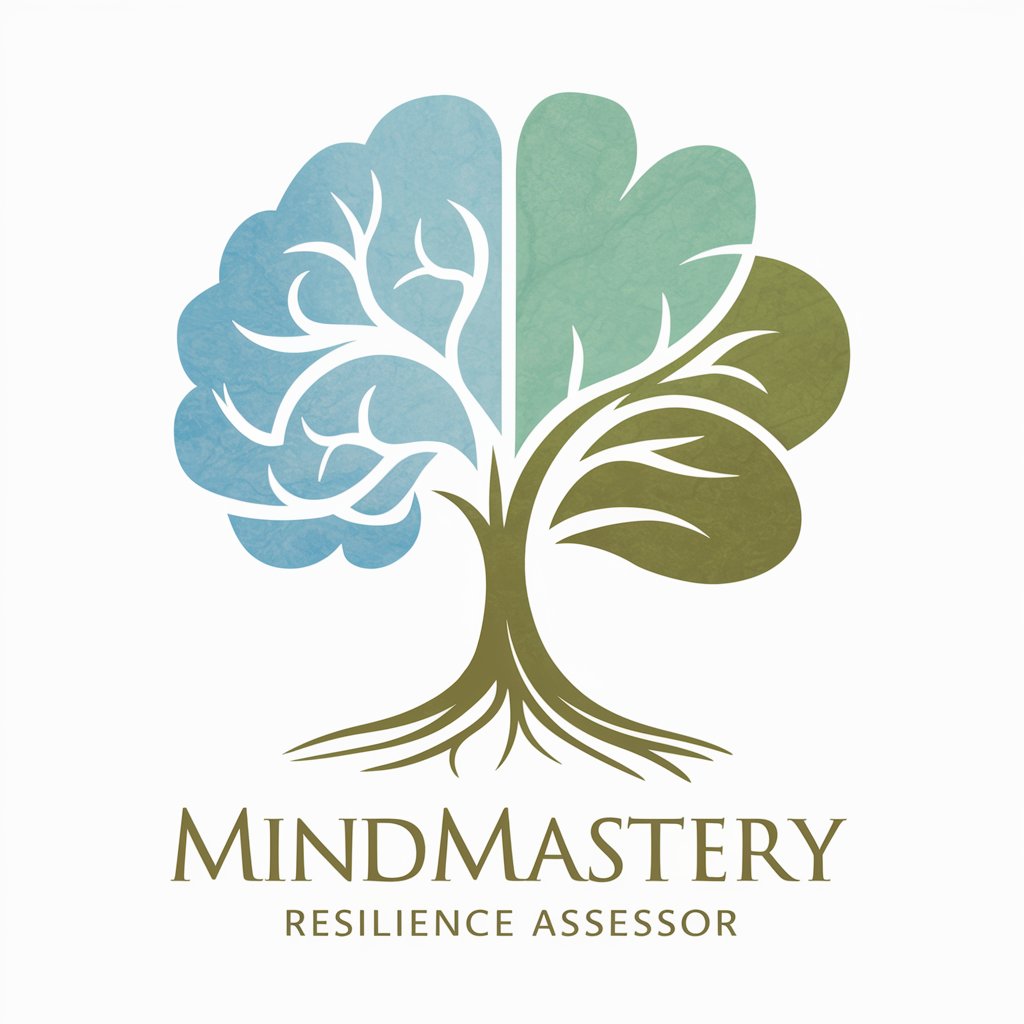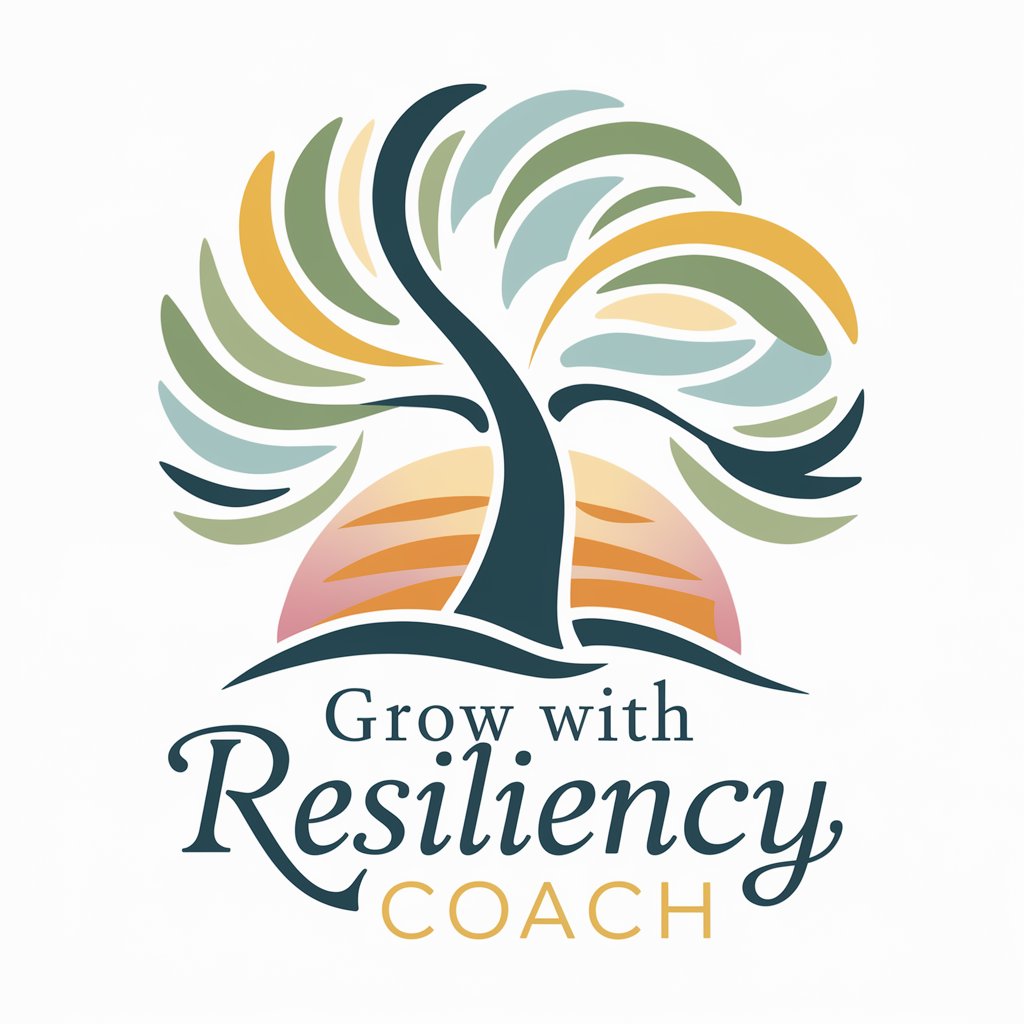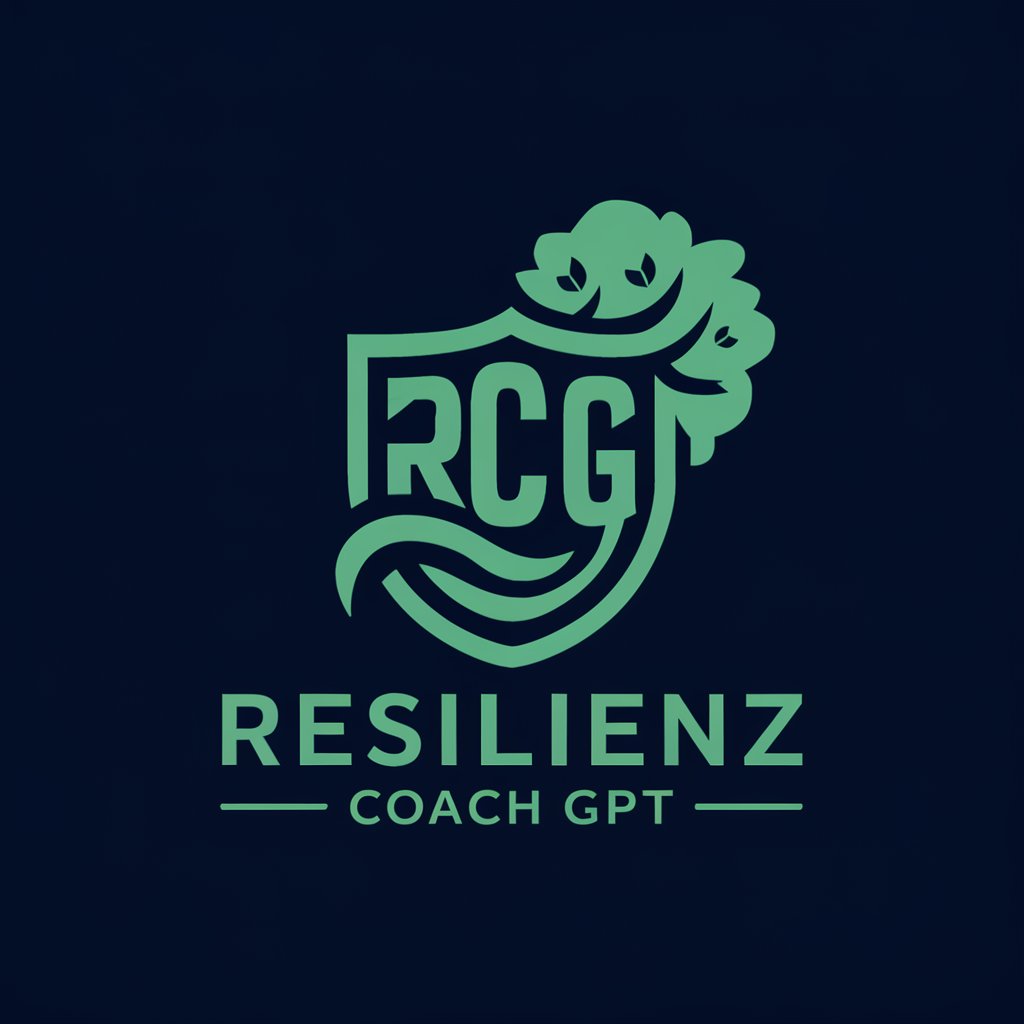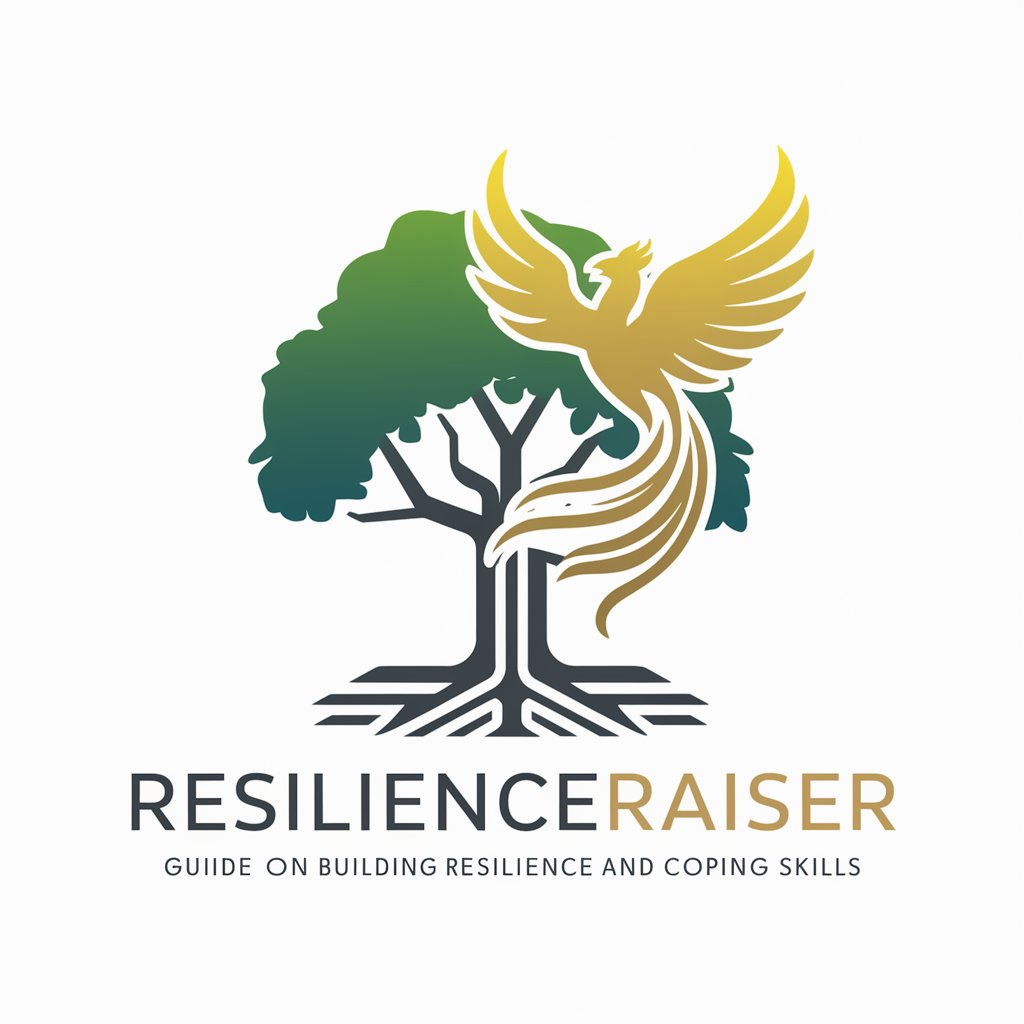
Psychological Resilience builder - Personalized Resilience Coaching
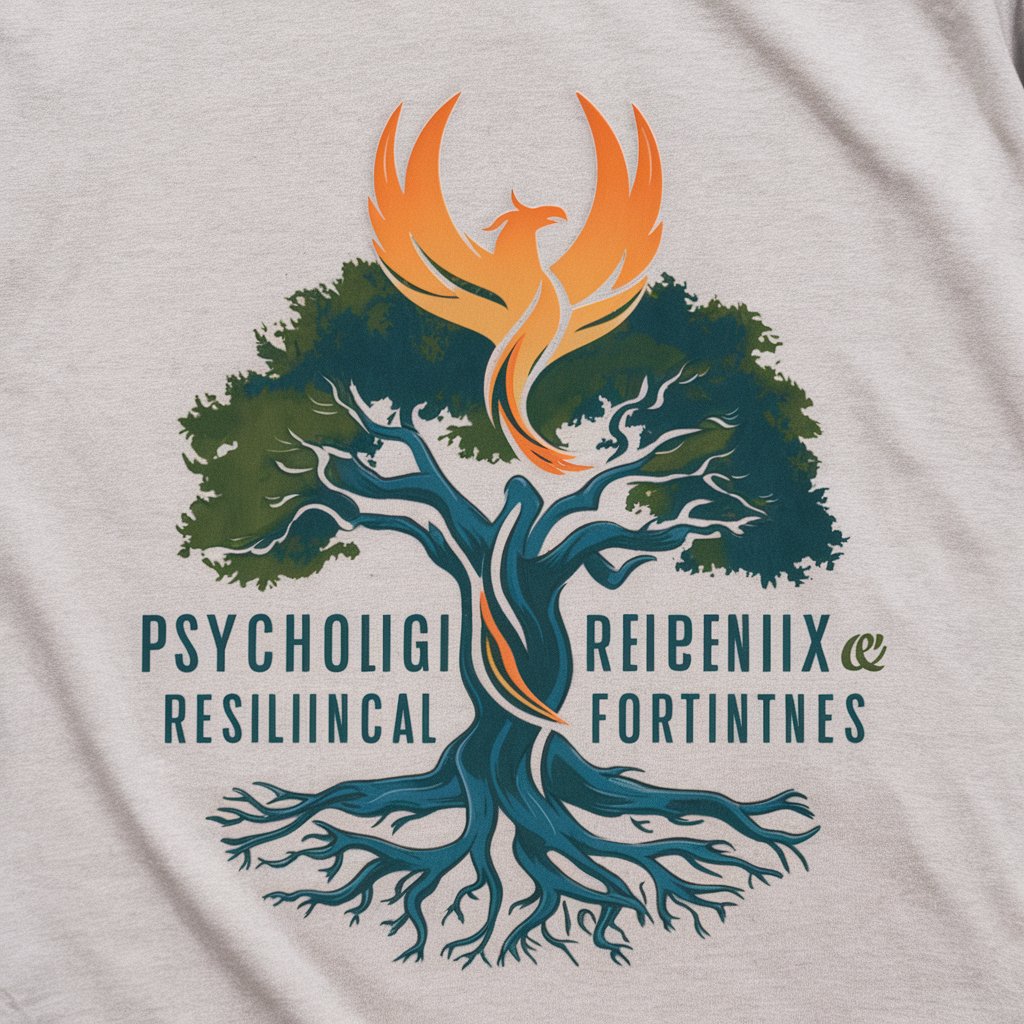
Welcome! Ready to build resilience today?
Strengthen your mind, build resilience.
What are some cognitive-behavioral techniques that can help manage daily stress?
How can positive psychology principles be applied to improve resilience in the workplace?
What daily practices can enhance emotional intelligence and self-awareness?
Can you suggest books or resources for ongoing learning about psychological resilience?
Get Embed Code
Introduction to Psychological Resilience Builder
Psychological Resilience Builder is designed to enhance individuals' ability to adapt to stress and adversity while maintaining or returning to a state of mental well-being. This advanced tool combines evidence-based psychological principles and exercises to foster resilience, drawing on cognitive-behavioral techniques, positive psychology, and emotional intelligence. For example, it may guide a user through a series of reflective exercises to increase self-awareness, teach cognitive restructuring to challenge and change negative thought patterns, or offer strategies for building a supportive social network. Powered by ChatGPT-4o。

Main Functions of Psychological Resilience Builder
Cognitive-behavioral exercises
Example
Teaching users to identify and reframe irrational beliefs that contribute to stress and anxiety.
Scenario
A user struggling with perfectionism learns to recognize and challenge perfectionistic thoughts, reducing anxiety and improving productivity.
Positive psychology interventions
Example
Encouraging practices like gratitude journaling or engagement in activities that promote flow and fulfillment.
Scenario
A user facing burnout incorporates gratitude exercises into their routine, fostering a more positive outlook and enhancing overall life satisfaction.
Emotional intelligence development
Example
Improving users' ability to understand and manage their own emotions and the emotions of others.
Scenario
A manager develops greater emotional intelligence, leading to improved communication and relationships with team members, enhancing team cohesion and performance.
Stress management techniques
Example
Providing strategies for relaxation, such as deep breathing, mindfulness, or progressive muscle relaxation.
Scenario
A user experiencing high levels of stress learns and applies mindfulness techniques, leading to reduced stress levels and improved focus.
Ideal Users of Psychological Resilience Builder Services
Individuals facing personal or professional challenges
People undergoing significant life changes, work-related stress, or personal adversity can benefit from resilience building to navigate these challenges more effectively.
Mental health professionals
Therapists, counselors, and coaches can use the tool to supplement therapy sessions, offering clients additional resources to practice resilience-building techniques between sessions.
Corporate teams
Organizations aiming to enhance employee well-being and productivity may implement the tool as part of their wellness programs, promoting a healthier work environment.
Educators and students
Teachers and students can apply resilience-building exercises to cope with academic pressures and improve performance and well-being in educational settings.

How to Use Psychological Resilience Builder
1
Visit yeschat.ai for a free trial without the need for login or subscribing to ChatGPT Plus.
2
Select the Psychological Resilience Builder from the list of available tools to start building resilience strategies.
3
Answer preliminary questions about your current stress levels, challenges, and goals to personalize the resilience-building process.
4
Engage with interactive sessions that include cognitive-behavioral techniques, positive psychology exercises, and self-reflection prompts.
5
Regularly review and adjust your goals and strategies based on feedback and progress tracking within the tool.
Try other advanced and practical GPTs
Creativity Enhancer GPT
Unlock Your Creative Genius with AI
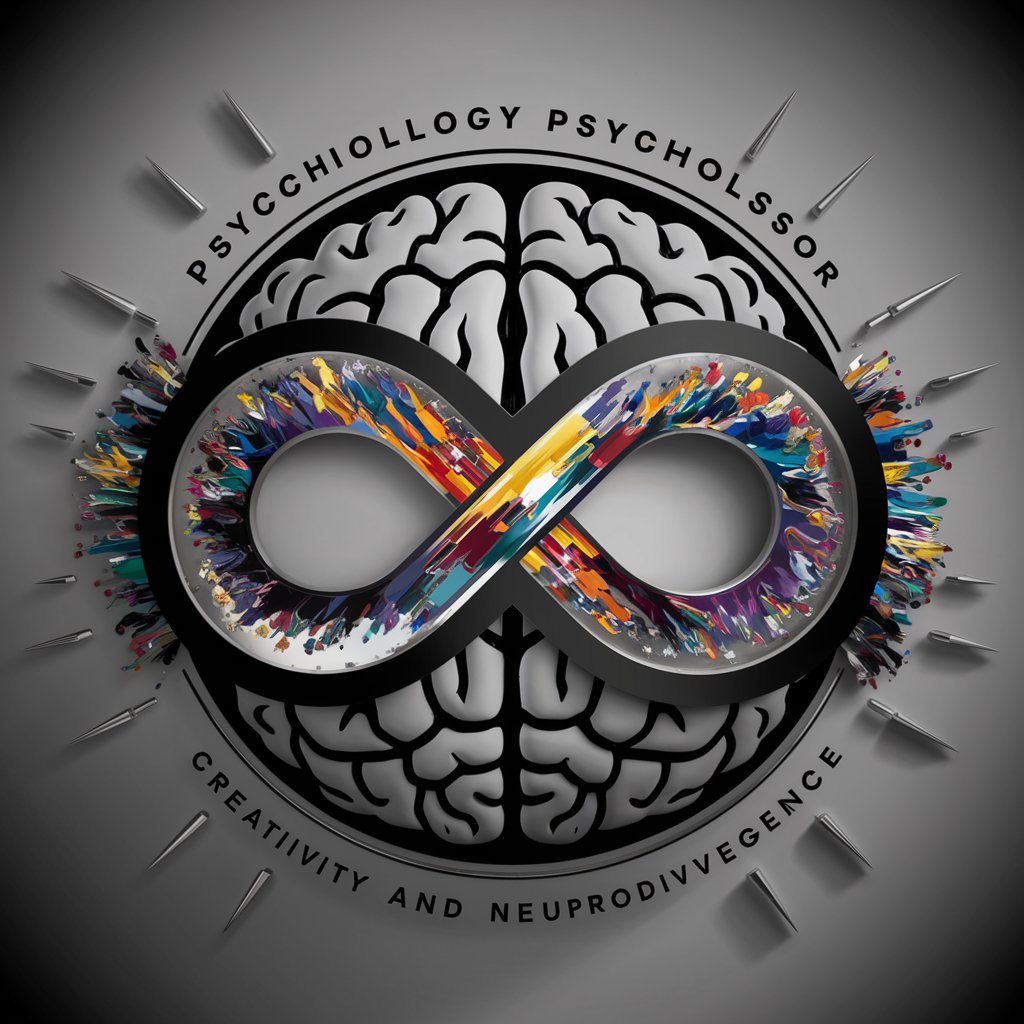
Cannabis Connoisseur and Strain Creator GPT
Empowering Your Cannabis Journey with AI

Vogue Virtuoso GPT
AI-powered Personal Fashion Guide

Powerful Resume Assistant
Craft Your Success with AI-Powered Resumes

Magic Painter for MJ V6
Unleashing Creativity with AI Art Magic

Magic World - A Text Interactive Game
Craft Your Fantasy, Live Your Story

Empathy Enhancer GPT
Empowering Empathy Through AI

Bodybuilding & Fitness Guru GPT
Empowering Your Fitness Journey with AI

Quantum Circuit Generator GPT
Powering Quantum Innovation with AI

String Theory Lecturer GPT
Demystifying string theory with AI

Fragrance Creator and Connoisseur GPT
Craft Your Signature Scent with AI

Quantum Mechanics GPT Lecturer
Demystifying Quantum Mechanics with AI

Q&A about Psychological Resilience Builder
What is Psychological Resilience Builder?
It's an AI-powered tool designed to help individuals enhance their ability to withstand and recover from stressful situations through personalized exercises and strategies.
How often should I use this tool for best results?
For optimal outcomes, it's recommended to engage with the tool's exercises and reflective practices daily or at least several times a week.
Can Psychological Resilience Builder replace therapy?
While it can support mental well-being and resilience, it is not a substitute for professional therapy. It's best used as a complement to traditional therapeutic approaches.
Is the tool suitable for people without a background in psychology?
Yes, the tool is designed to be accessible and beneficial for individuals regardless of their knowledge of psychology, with user-friendly guidance and support.
How does the tool personalize resilience-building strategies?
It analyzes your responses to initial assessments and ongoing interactions, tailoring exercises and recommendations to your specific needs and progress.
